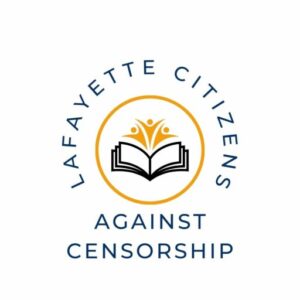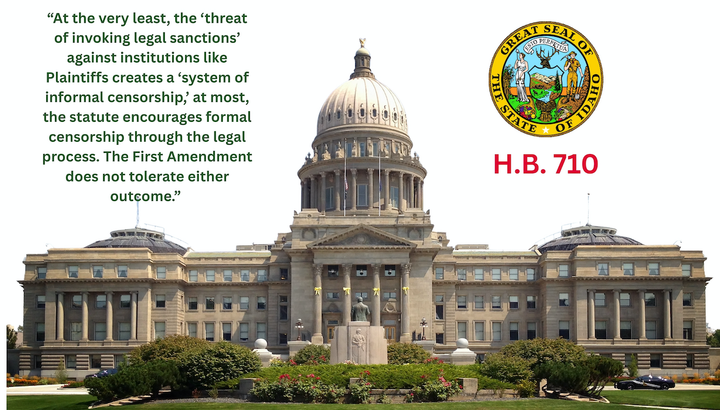The Queue: Library News for the Week Ending July 18, 2025
Among the week's headlines: EveryLibrary takes stock of the legislative landscape; New Hampshire's Ayotte vetoes book ban bill; the book ban battles rage on in Alabama; and the 'New York Times' reports on the state of library ebooks.

Leading off the news this week, library advocacy group EveryLibrary has released its 2025 report on the state legislative landscape.
The bad news: legislative attacks on libraries and schools continue at an alarming rate. In 2025, there were 132 bills introduced across 33 states considered to be harmful "to public libraries, school libraries, librarianship, or the rights of readers." But there was good news, too: the 2025 report found that librarians, educators, and freedom to read advocates are fighting back with legislation of their own—and notching some successes.
"While the threats to free expression and the right to read remain persistent and serious, the report also highlights important legislative victories in nine states that passed pro-library, pro-reader bills in the first half of the year," EveryLibrary officials noted, in a release. "These wins include new laws that affirm the right to read, protect school and public librarians from harassment or prosecution, ensure access to digital content, and strengthen public policy in support of open and equitable library service."

The report also includes sections offering excellent insight on the need for solidarity in the library sector, and for strong "pro-library" coalitions.
"A significant lesson from the 2025 legislative cycle is that pro-library coalitions are not only necessary but must also be intentionally built, strategically aligned, and flexible across ideological lines to succeed," the report notes. "In nearly every state where library advocates successfully resisted harmful legislation or passed protective laws this year, coalitions served as the essential infrastructure for action."
Some four years into an unprecedented right-wing political operation targeting libraries, diversity, and the freedom to read, the report is intended to serve as both "a diagnostic and strategic tool," EveryLibrary officials said, in a statement.
"While we continue to track serious threats to libraries, this report is first and foremost a roadmap for winning," the statement reads. "When we focus on smart policy, build the right coalitions, and tell the right story to legislators, we can make meaningful progress."
New Hampshire Governor Vetoes Book Ban Bill

The New Hampshire Union Leader reports that New Hampshire Governor Kelly Ayotte this week vetoed HB 324, a controversial Republican-backed book banning bill.
“Current state law appears to provide a mechanism for parents through their local school district to exercise their rights to ensure their children are not exposed to inappropriate materials,” Ayotte wrote in her veto message. “Therefore, I do not believe the state of New Hampshire needs to, nor should it, engage in the role of addressing questions of literary value and appropriateness, particularly where the system created by House Bill 324 calls for monetary penalties based on subjective standards.”
The veto comes after a coalition of partners, with support from EveryLibrary, mounted a campaign urging Ayotte to veto the bill following its passage this spring, which included a poll released in April 2025 by EveryLibrary and MomsRising NH that showed voters "across the political spectrum, especially independents and moderates," disapproved of the bill's attempt to criminalize the work of educators and librarians.
Ayotte's veto comes after another Republican, North Dakota Governor Kelly Armstrong, vetoed a similar bill in April.
ALA Releases Its New Strategic Plan

There will be much more to come on this, but in a July 18 message to members, ALA president Sam Helmick unveiled the broad strokes of the ALA's new strategic plan.
"This plan, developed by the Executive Board and approved by ALA Council, reflects your voice, your needs, and your future," Helmick writes. "It lays out clear priorities that will drive meaningful impact for our members, our industry, and the broader community we serve."
The State of Federal Library Funding

in American Libraries, ALA's Kevin Maher, a seasoned legislative pro, weighs in with an excellent post on where things stand in terms of federal funding for libraries, which can be confusing these days following the recent passage of Trump's massive budget bill and various court decisions.
"Will the recent and highly controversial reconciliation package (the One Big Beautiful Bill Act) cut library funding? The short answer is no," Maher notes, explaining that library funding is considered discretionary spending (not mandated by law) and thus is ineligible to be included in the package. However, the bill does raise concerns for libraries, he adds. "A major concern is that the current version of the reconciliation package adds trillions to the deficit, which will force difficult funding choices down the road."
Maher closes by urging library supporters to make their voices heard with their legislators. "If you haven’t yet made a call or sent a message to your elected officials, you can use this link to support library funding today. And if you aren’t represented by someone on an appropriations committee, it’s just as important for you to keep contacting your representatives using the action pages and other resources from ALA to Show Up for Our Libraries, today and every day."
Appeals Court Rejects School Board's Bid to Block Testimony in Florida Book Banning Case

The Tampa Free Press reports that the 11th Circuit Court of Appeals has rejected a bid by the Escambia County School Board to avoid testifying about their decision-making process as part of a publisher-led book banning lawsuit in Florida. The decision, however, doesn't address the merits of the appeal, finding only that the board, as an entity (as opposed to its individual members), lack standing to pursue the appeal.
"The lawsuit, initiated in 2023 by parents, authors, the publishing company Penguin Random House, and the free speech organization PEN America Center, Inc., alleges that the Escambia County book decisions violated the First Amendment. As part of the proceedings, plaintiffs sought to depose individual school board members to inquire about the rationale behind their actions," the article explains.
Escambia County board members had argued that their deliberations are shielded from scrutiny as "legislative acts." But in a decision last year, judge T. Kent Wetherell, rejected that argument, concluding that the board’s decisions on book removal were "administrative" acts. It is unclear whether the the Appeals court decision will now facilitate the board members' testimony, as the individual board members could still appeal on their own behalf.
Anthropic Wants to Appeal Copyright Decision, as Judge Certifies Potential Author Class

Via IP Watchdog, AI firm Anthropic has asked federal judge William Alsup for permission to file an interlocutory appeal with Ninth Circuit over the judge's ruling that the company must face a damages trial over a library the company created with materials downloaded from pirate sites.
In June, Alsup found that Anthropic's use of the copyrighted materials for training its LLM was fair use, but also held that the company must answer for keeping unauthorized copies of the works it downloaded as part of a "general purpose" library, a decision that could expose the company to millions in potential damages.
On that score, in a separate decision, Alsup on July 17 certified that the authors of these allegedly pirated books could form a class and proceed with a class action suit.
Will Congress Regulate AI?
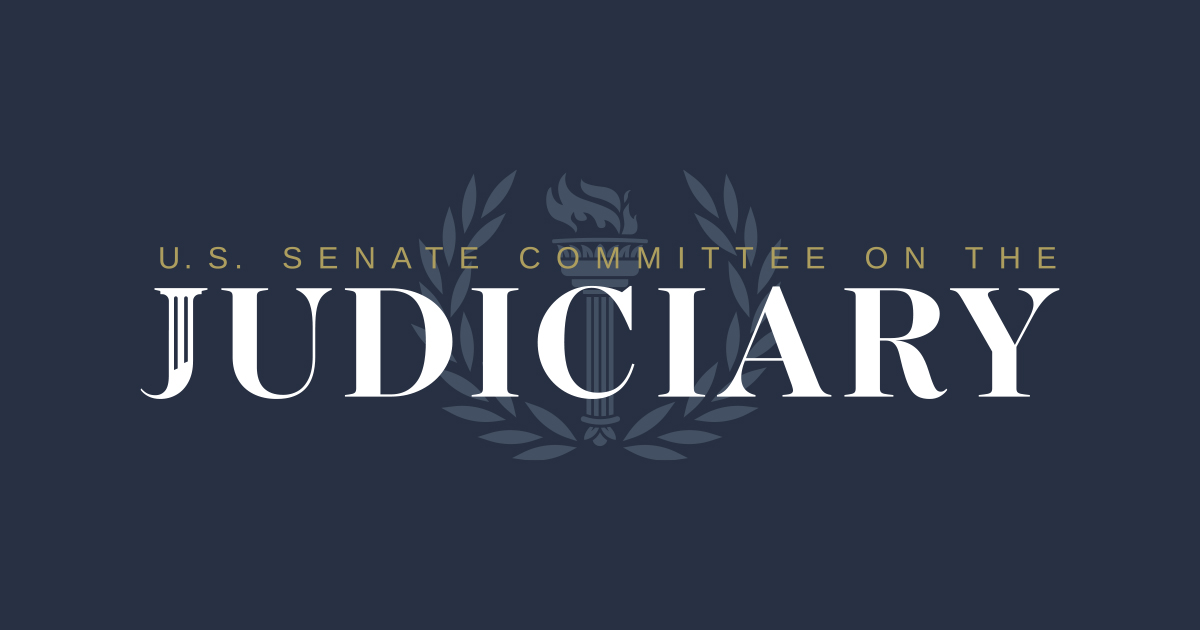
As the courts grapple with whether AI training on copyrighted works is fair use or infringement, the U.S. Senate Judiciary Committee's Subcommittee on Crime and Counterterrorism held a hearing on July 16 titled: Too Big to Prosecute?: Examining the AI Industry’s Mass Ingestion of Copyrighted Works for AI Training. The upshot of the hearing: Congress must play a role in regulating the technology.
In his opening remarks, Missouri Senator Josh Hawley, who presided over the hearing, said that AI companies use of copyrighted works to train their LLMs was the largest theft of intellectual property in history. "If this isn’t infringement, Congress needs to do something," Hawley concluded, suggesting that the ability of tech companies to use a creator's work, "lie about it, hide it, and profit off of it," without compensation or redress, should motivate Congress to act.
You can download the testimony of the witnesses here, and watch the hearing in full.
Study Suggests New Virginia State Law Is 'Incorrectly' Driving Book Bans

Via the Virginia Scope, a nonpartisan study has revealed that some schools in Virginia are "incorrectly" citing a 2022 state law to justify book removals.
"The Joint Legislative and Audit Review Commission (JLARC) presented a report to members of the General Assembly on Monday about books that are being removed from school libraries across Virginia," the article states. "The law—which some school districts cited in JLARC’s survey as justification for book removals—requires schools to notify parents if their children’s instructional materials include sexually explicit content. It does not require districts to remove books when a parent withholds consent; instead, schools are expected to provide alternative, non-explicit materials for those students."
In fact, the Scope notes, the law's "enactment clause" specifically stated that the law should not be construed as "providing for the censoring of books in public elementary and secondary schools.” The study's authors conclude that it may be "useful" for the state to "directly clarify that the 2022 law does not apply to removing school library books," but they also concede that the state "has no authority over which books school libraries carry."
Can Michigan Bring Back Its School Librarians?

Via Bridge Michigan, the Michigan state senate has proposed a $15 million carve-out in its proposed budget to support school libraries and media centers. "The proposed budgets from the House and from the administration of Gov. Gretchen Whitmer do not have money set aside for libraries. The fate of dedicated library funds will be determined in the negotiations over a final school budget," the report notes.
The report details the massive slide in the ranks of school librarians in the state in a little over a decade. "In 2004-5, there were over 1,400 certified librarians in Michigan, according to the Center for Educational Performance and Information. By 2014-15, there were just over 500 school librarians—similar to the number today," Bridge reports.
Louisiana Library Board Agrees to Settle Lawsuit Filed by Freedom to Read Advocates
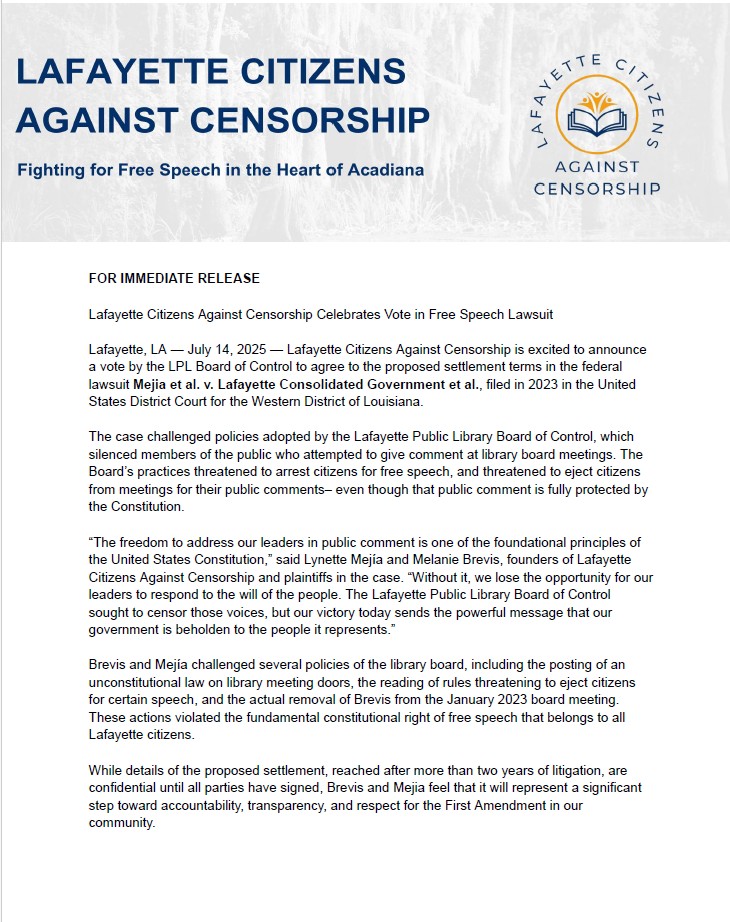
In a release this week, the advocacy group Lafayette Citizens Against Censorship reported that the Lafayette Public Library board this week voted to settle a 2023 lawsuit over a policy that sought to block censorship opponents from commenting the board's proposed policies at public meetings.
“The freedom to address our leaders in public comment is one of the foundational principles of the United States Constitution,” said Lynette Mejia and Melanie Brevis, founders of Lafayette Citizens Against Censorship and plaintiffs in the case. “Without it, we lose the opportunity for our leaders to respond to the will of the people. The Lafayette Public Library Board of Control sought to censor those voices, but our victory today sends the powerful message that our government is beholden to the people it represents.”
In the suit, Mejia et al. v. Lafayette Consolidated Government et al, Brevis and Mejia challenged several policies of the library board, including "the posting of an unconstitutional law on library meeting doors, the reading of rules threatening to eject citizens for certain speech, and the actual removal of Brevis from a January 2023 board meeting."
While details of the proposed settlement remain confidential until the agreement is officially signed, Brevis and Mejia celebrated the board's action. “Today’s vote outcome is a victory for the people of Lafayette and a reminder that free speech is a cornerstone of our democracy,” said Brevis and Mejia.
Louisiana Library at Heart of Book Banning Battles Abruptly Fires Its Director

Via the local Livingston Parish News, the Livingston Parish Library, the hometown library of librarian, author, and freedom to read advocate Amanda Jones, unexpectedly fired its director and dismissed several board members at a public board meeting this week. The surprise 6-4 vote reportedly so outraged the four board members who opposed the motion, the paper reports, they "resigned and walked out" of the board meeting.
"The firing is the latest escalation in a years-long controversy surrounding the Livingston Parish Library tied to the Lafayette based group, Citizens for a New Louisiana," the report notes. "CFNL has a documented history of activism targeting public library systems across Louisiana, including efforts to challenge book content, oppose national professional associations, and influence local board appointments and policies."
The Book Banning Battle Rages on in Alabama Libraries

AL.com reports on a public board meeting at the Huntsville-Madison County Public Library (HMCPL), where a debate over censorship issues reportedly took up more than half the meeting.
"Three speakers called for further restrictions. Some advocated for the removal of several types of children’s books, like ones that have nudity or transgender representation," the report notes, with one supporter of Moms for Liberty labeling diversity in library collections "an agenda" that is "being shoved in the faces of our children."
But seven of the 10 speakers argued against censorship in the library, the report notes, with one advocate citing the late poet Andrea Gibson to "explain why it’s dangerous to erase transgender identities."
World Mourns Groundbreaking Poet Andrea Gibson

Via the Associated Press, sad news this week that influential poet Andrea Gibson has succumbed to ovarian cancer at the age of 49.
"Tributes poured in Monday from friends, fans and fellow poets who said Gibson’s words had changed their lives—and, in some cases, saved them," the AP's tribute notes. "Many LGBTQ+ fans said Gibson’s poetry helped them learn to love themselves. People with cancer and other terminal illnesses said Gibson made them less afraid of death by reminding them that we never really leave the ones we love."
Alabama Library Leader Supports 'Crackdown' on Gender Issues

Via Yellowhammer News, Alabama Public Library Service (APLS) Board Chairman John Wahl (who also serves as the Alabama Republican Party Chairman) this week issued a letter to public library directors that the APLS Board "will stand behind President Trump’s executive order banning the use of federal funds to promote gender ideology."
"The letter, sent Wednesday, notified local libraries that, in order to remain eligible for federal grants administered by APLS, they must bring their operations into full compliance with the executive order," Yellowhammer reports. "The letter also directed libraries to review their collections, programming, and policies to ensure that no federal dollars are being used to advance 'gender ideology' in any form.
Idaho, Washington Library Consortium to Dissolve
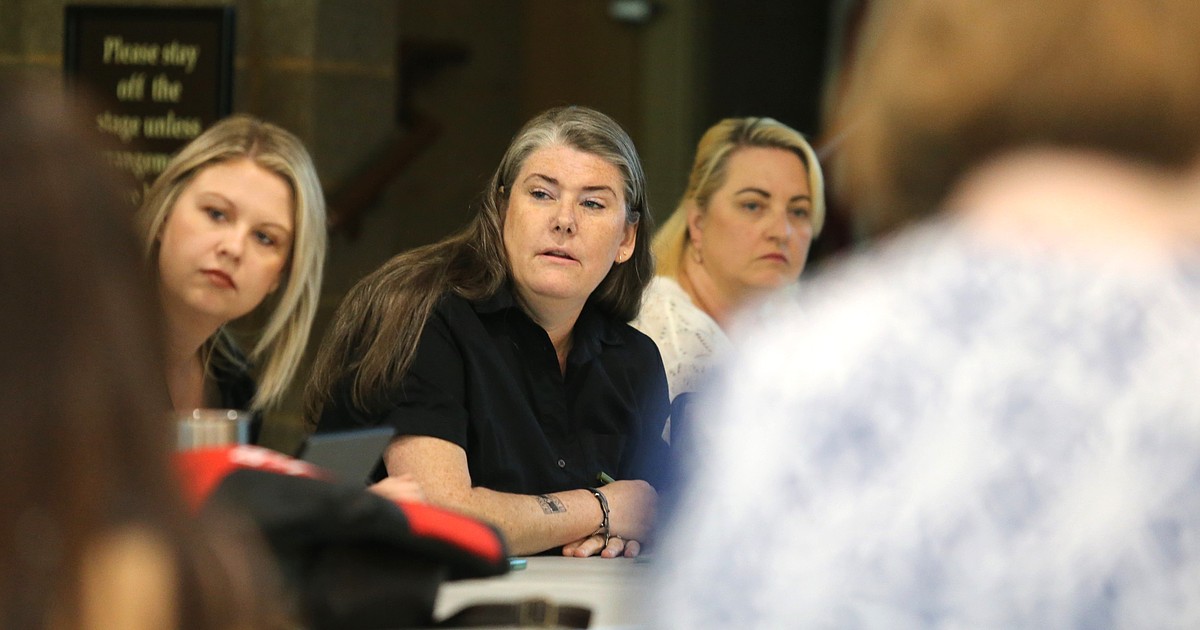
Via the Coeur d'Alene Press, a 40 year-old regional library consortium is following through with a plan to dissolve, reportedly prompted by a dispute over content restrictions for minors at some member libraries.
"Several member libraries have pointed specifically to [consortium member] Community Library Network's updated policies for minor library cardholders as the impetus for the dissolution. Some library directors said they believe abiding by CLN’s more restrictive policies would put other libraries in the consortium at risk of litigation," the report notes, adding that CLN trustees in January "voted to restrict the nearly 9,000 library cards belonging to minor patrons from placing holds on materials from other libraries within the consortium and barred them from accessing material deemed 'harmful to minors,' regardless of the wishes of their parents or guardians."
Run for Something

Over at Book Riot, Kelly Jensen leads off her weekly censorship news roundup with an essay from a librarian in Iowa who, "fired up after seeing the right-wing legislation targeting libraries throughout her state, is choosing to run for the Iowa House of Representatives."
And Finally This Week...
As we've reported here at Words & Money, the library ebook market is heating up again after the May passage of a new library ebook law in Connecticut, and the release of a new report on the state of the market by librarians last week. Case in point: the New York Times has noticed.
"The issue is causing tension in the book community. Librarians complain that publishers charge so much to license e-books that it’s busting library budgets and frustrating efforts to provide equitable access to reading materials," the Times reports this week. "Big publishers and many authors say that e-book library access undermines their already struggling business models. Smaller presses are split."
The article is largely remedial, going over the long simmering points of a dispute that goes back nearly two decades, though it does note the reemergence of library ebook legislation. But here's a telling note: none of the major publishers is quoted in the article.








